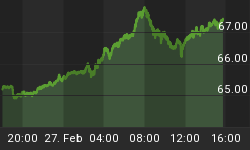The biggest intergenerational wealth transfer in history is underway. Baby boomers and older Americans have spent decades accumulating an enormous stockpile of money and wealth, with Federal Reserve data revealing that Americans age 70 and above had a net worth of nearly $35 trillion by the end of Q1 2021.
There is no consensus regarding the amount or timing of the wealth transfer, with Barclays estimating $7.5 trillion will be transferred over the next three decades; the New York Times has forecast $15 trillion over the next decade while PNC pegs it at $59 trillion by 2061. What is clear, however, is that strategic wealth management firms will be looking to capitalize on the great wealth transfer opportunities that will be coming up.
Wealth management firms, however, will have their work cut out for them trying to compete for business from younger demographics.
Whereas baby boomers may trust their financial advisors implicitly, younger generations demand choices and are more likely to conduct unilateral research before making decisions. According to a wealth transfer report by enterprise software company Unqork, at least 80% of millennial heirs will choose new financial advisors instead of sticking with their parents’ trusted wealth management firms. About 40% of high net-worth individuals under 40 say they are not satisfied with personalized offerings by their firms with a similar number citing lack of value-added services as an attrition driver.
It’s, therefore, clear that what worked in the past will hardly suffice for younger generations, and wealth management firms will need to supercharge their digital transformation journeys using, among other things, investments in cybersecurity and human-centered designs critical to building superior digital client experience (CX).
Here are the top 3 wealth management trends in 2022.
#1. Digital Asset Investment Strategies Expand
Apart from traditional asset classes such as real estate, equity and fixed income instruments, high net-worth individuals (HNWIs) are increasingly investing in digital assets such as cryptocurrencies and non-fungible tokens (NFTs). Increased digitization of businesses is leading to a rapidly expanding digital asset universe. For example, in 2021, there were more than 8,000 cryptocurrencies with an aggregate market capitalization of $1.6 trillion.
A 2021 World Wealth Report revealed that 72% of 2,900 HNWIs surveyed have invested in cryptocurrencies while 74% have invested in other digital assets such as website domain names. Those figures rise to 91% and 94% for HNWIs under 40.
Both traditional and digital players have started rolling out products and offerings to address HNWIs’interest in digital assets.
- Last year, Citi launched a Digital Assets Group to develop various blockchain-enabled finance tools.
- Wealthfront has launched two cryptocurrency trusts that customers can add to their portfolios with a limit of 10% of their portfolios.
- Fidelity plans to launch a bitcoin ETF to expand its cache of digital products.
#2. Cybersecurity Becomes Top Priority
Cybercrime has become a serious threat in the modern digital world, with cybercrime damages across all industries doubling to $6 trillion in 2021 from $3 trillion seven years ago. Cybercrime clearly puts the wealth management sector in great jeopardy especially during this time of unprecedented wealth transfer.
This is further compounded by the fact that wealth management firms face unique privacy, data security and compliance strategies. Access to new data sources, digitization, legacy infrastructure as well as migration to the cloud leaves wealth management firms more vulnerable to cyberattacks. Indeed, Norfund, a Norwegian wealth management firm, lost $10 million to hackers at the height of the pandemic.
A ranking by GlobalData’s Wealth Management Scorecard has assigned a rather mediocre cybersecurity rating of 2.9 out of 5 for the world’s top 60 wealth managers, leaving plenty of room for improvement.
Top wealth management companies are now sealing their cybersecurity loopholes by implementing zero trust architectures in their networks.
- Goldman Sachs plans to invest $72.5 million in AI algorithms and data analytics for cybersecurity threat detection and blocking fraudulent applications that collect customer data in real-time on a large scale.
- JPMorgan Chase has invested in cybersecurity fintechs Menlo Security, Akoya and Reversing Labs.
- Belgium’s Belfius Bank has partnered with Chicago-based OneSpan, a multi-factor authentication and electronic signature software specialist.
#3. Human-Centered Designs Go Mainstream
The wealth management sector relies heavily on human advisor expertise and personal connections. A combination of human touch and technology-driven efficiency thus remains essential even as more firms accelerate their digitization efforts.
A digital experience that emphasizes empathy and is viewed as the ideal solution to enhance user experience. Several surveys have revealed low satisfaction scores with the current crop of processes/interfaces, with more than half of HNWIs saying they do not find many interfaces easy to use or understand.
Wealth management firms are now working to incorporate empathy into engagement and business strategy to help them consistently deliver on client needs.
- Northern Trust has updated its customer-facing tool, Online Report Center, by incorporating human-centered design principles.
- Canada’s National Wealth Management Bank (NWM) has revamped its website to deliver a consistent digital user experience to enhance better communication between clients and advisors.
- Schwab Advisor Services has launched a Digital Account Open tool and enhanced onboarding to streamline advisor workflow and make the onboarding process seamless for clients.
Overall, fintech innovations will continue disrupting the wealth management industry with the emergence of super apps that cater to diverse client needs from a single platform. Future-focused wealth management firms will continue to explore ecosystem collaboration in a bid to expand reach, boost capabilities and cut costs.
















